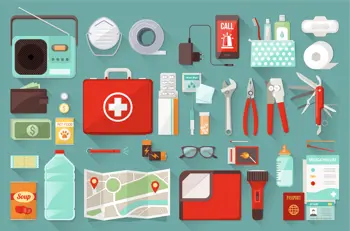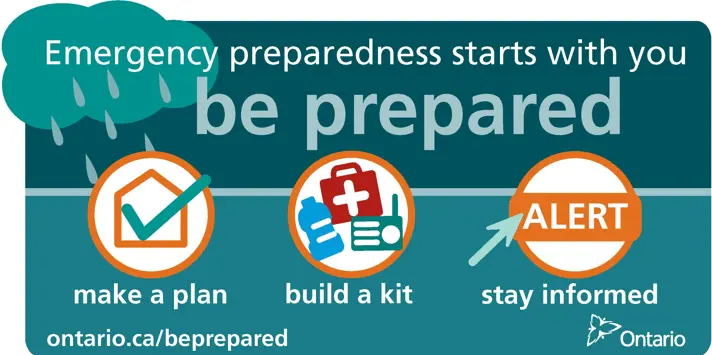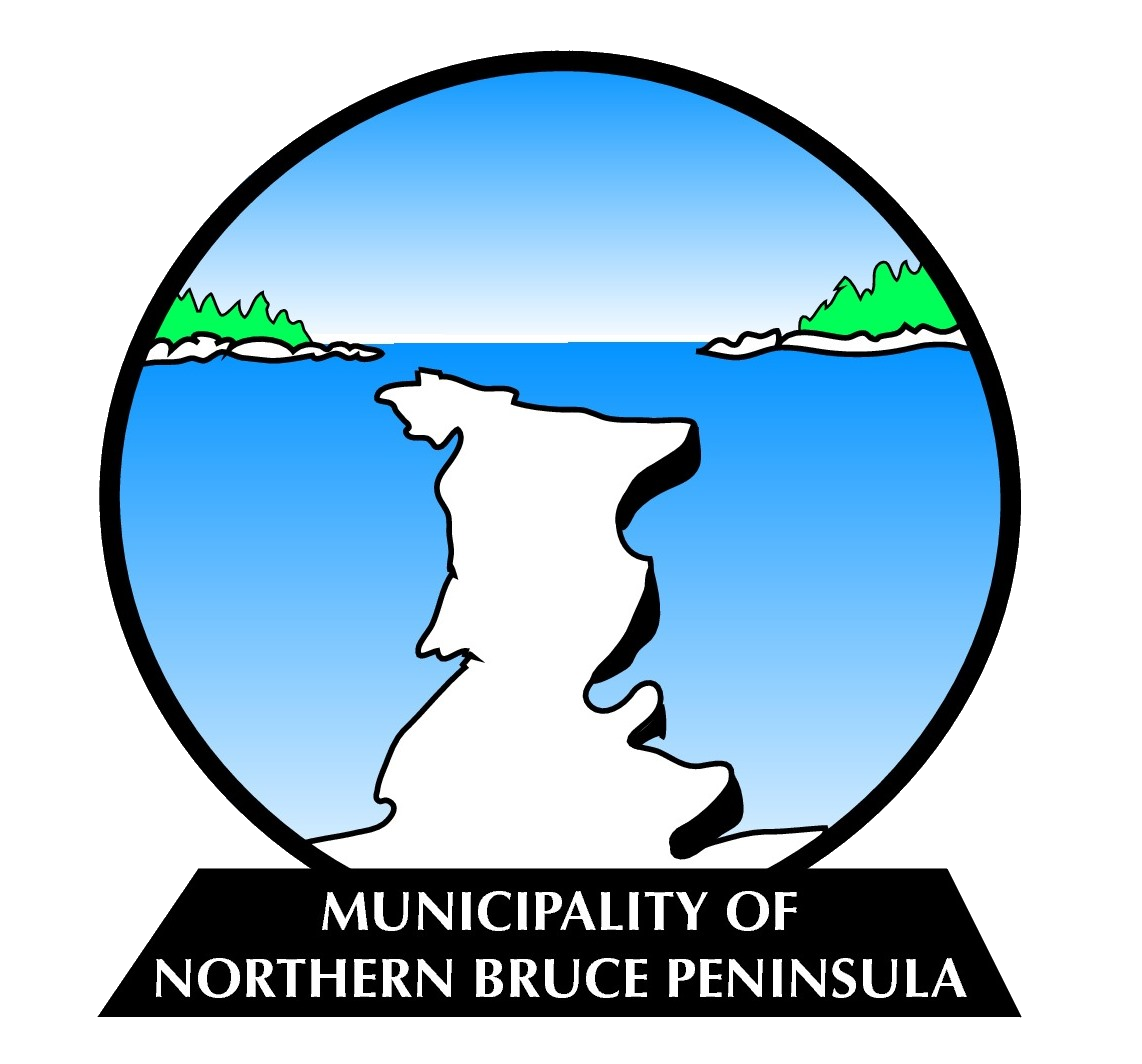- Prepare a Family Emergency Plan - Youtube video
- Get Prepared - Government of Canada Resources
- Be Prepared for Anything - Ontario Government Resources
- The Weather Network - Northern Bruce Peninsula
- Ontario Fire Marshal
- Canadian Red Cross
- Grey Bruce Public Health
- Ministry of Community Safety and Correctional Services
Emergency Preparedness
An emergency can happen at any moment.
Here are a few tips, as well as links to resources, that will help you plan for the unexpected.
Make an Emergency Plan
An emergency plan will help everyone in your household know what to do in the event of an emergency.
It should include information like:
- Safe exits from home and neighbourhood
- Meeting places to reunite with family or roommates
- Designated person to pick up children should you be unavailable
- Emergency numbers and contact information
- Health and insurance information
- Places for your pet to stay
- Risks in the area
- Location of your fire extinguisher, water valve, electrical panel, gas valve and floor drain
Click here for online tools to help you create an Emergency Plan.
Assemble an Emergency Kit
Some items to have in your emergency kit include:
- food (non-perishable and easy-to-prepare items, enough for three days) and a manual can opener
- bottled or bagged water (4 litres per person for each day) and backup water purification tablets
- medication(s)
- toilet paper and other personal items such as soap, shampoo, toothbrush, toothpaste, etc.
- personal protective equipment (PPE) such as medical masks and respirators
- back up chargers and power banks for cell phone or mobile device
- cash in small bills
- portable light source such as a flashlight, headlamp or glow stick
- radio (crank or battery-run)
- extra batteries
- first-aid kit
- candles and matches/lighter
- hand sanitizer or moist towelettes
- important papers such as a copy of your emergency plan, identification, contact lists, copies of prescriptions, etc.
- extra car and house keys
- whistle (to attract attention, if needed)
- sealable plastic bag (to keep things dry)
- garbage bags and duct tape

Stay Informed
There are many resources available online to help you stay informed before and during an emergency.
- Area highway conditions- https://511on.ca/
- Environment Canada weather alerts - https://weather.gc.ca/mainmenu/alert_menu_e.html
- Alert Ready – Canada’s emergency alerting system - https://www.alertready.ca/
- Emergency management in Ontario - https://www.ontario.ca/page/emergency-management
- How to be Prepared for Different Types of Emergencies
- Safety for All – Ensure everyone, including children, seniors, people with disabilities and pets are prepared for an emergency
Emergency Preparedness Week

Emergency Preparedness Week- May 4-10, 2025
Like every municipality, regardless of size and location, Northern Bruce Peninsula can be seriously disrupted by an emergency. This could take the form of a severe storm, flood, fire, extended power outages, or similar disaster.
All capable adults are responsible for being prepared for unforeseen emergencies. While nobody can predict an emergency, it is important to plan for a variety of possibilities. Your personal plan can make a significant difference to you and your family's well-being. Emergencies can and do occur without warning.
The resources on this page have been assembled to help you prepare.
Heat Related Illnesses Power Outage Safety Severe Weather Safety
Contact Us
Municipality of Northern Bruce Peninsula
56 Lindsay Road 5
Lion’s Head ON N0H 1W0
1-833-793-3537
Email Us
